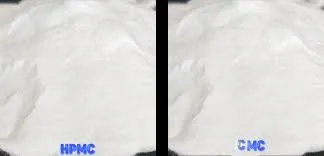
אוג . 15, 2024 06:14 Back to list
Exploring the Versatile Applications and Benefits of Hydroxyethyl Cellulose in Various Industries
The Versatile Uses of Hydroxyethyl Cellulose
Hydroxyethyl cellulose (HEC) is a non-ionic, water-soluble polymer derived from cellulose, a natural polymer found in the cell walls of plants. HEC is widely recognized for its unique properties, including thickening, gelling, film-forming, and stabilizing capabilities, making it an essential ingredient across various industries. This article explores the diverse applications of hydroxyethyl cellulose, highlighting its significance in different sectors.
1. Personal Care and Cosmetics
One of the most prominent uses of hydroxyethyl cellulose is in the personal care and cosmetics industry. It serves as a thickening agent in products such as shampoos, conditioners, lotions, and creams. Its ability to create a desirable viscosity without altering the feel of the final product makes it a favorite among formulators. Additionally, HEC acts as a film-forming agent, providing a protective layer on the skin, which is especially beneficial in moisturizers and sunscreens. Moreover, its soluble nature allows for easy dispersion in water-based formulations, further enhancing its utility in cosmetic applications.
In the pharmaceutical sector, hydroxyethyl cellulose is utilized as a binder and a controlled-release agent in tablet formulations. Its non-toxic and biodegradable nature makes it safe for use in medicines, while its ability to modify the release of active ingredients ensures prolonged therapeutic effects. HEC is also used in ophthalmic preparations, where it helps to maintain moisture levels in the eyes and improve the comfort of contact lens wearers. Due to its various functionalities, HEC plays a critical role in enhancing the efficacy of pharmaceutical products.
3. Food Industry
hydroxyethyl cellulose uses

Hydroxyethyl cellulose finds application as a food additive, primarily as a thickener and stabilizer. In the food industry, it helps to improve the texture and consistency of sauces, dressings, and processed foods. HEC is also used in gluten-free products to enhance dough properties and improve the texture of baked goods. Its ability to retain water is particularly useful in extending the shelf life of food items, ultimately reducing waste and improving consumer satisfaction.
4. Construction and Building Materials
The construction industry also benefits from hydroxyethyl cellulose as a key additive in various building materials. HEC is commonly used in cement, mortar, and tile adhesives to improve workability, water retention, and adhesion properties. By incorporating HEC, manufacturers can achieve higher performance levels in construction materials, making them easier to apply and enhancing their durability. Additionally, HEC helps to prevent cracking and shrinkage in cement-based products, contributing to the longevity of construction projects.
5. Agriculture
In agriculture, hydroxyethyl cellulose serves as a useful tool in the formulation of agricultural products. It can be used as a soil conditioner, improving soil structure and water retention. Furthermore, HEC is often included in pesticide formulations to enhance the adherence of active ingredients to plant surfaces, ensuring better efficacy of the chemicals applied. Its biodegradable nature aligns with the increasing demand for environmentally friendly agricultural practices.
Conclusion
The versatility of hydroxyethyl cellulose makes it an invaluable ingredient across multiple industries. From enhancing personal care products to improving food texture and construction materials, HEC plays a significant role in various formulations. As industries continue to evolve and focus on sustainable practices, the importance of HEC is likely to grow, paving the way for innovative applications and improvements in product performance. Its wide-ranging uses underline the significance of hydroxyethyl cellulose as a multifunctional additive that meets the diverse needs of manufacturers and consumers alike.
-
Versatile Hpmc Uses in Different Industries
NewsJun.19,2025
-
Redispersible Powder's Role in Enhancing Durability of Construction Products
NewsJun.19,2025
-
Hydroxyethyl Cellulose Applications Driving Green Industrial Processes
NewsJun.19,2025
-
Exploring Different Redispersible Polymer Powder
NewsJun.19,2025
-
Choosing the Right Mortar Bonding Agent
NewsJun.19,2025
-
Applications and Significance of China Hpmc in Modern Industries
NewsJun.19,2025







